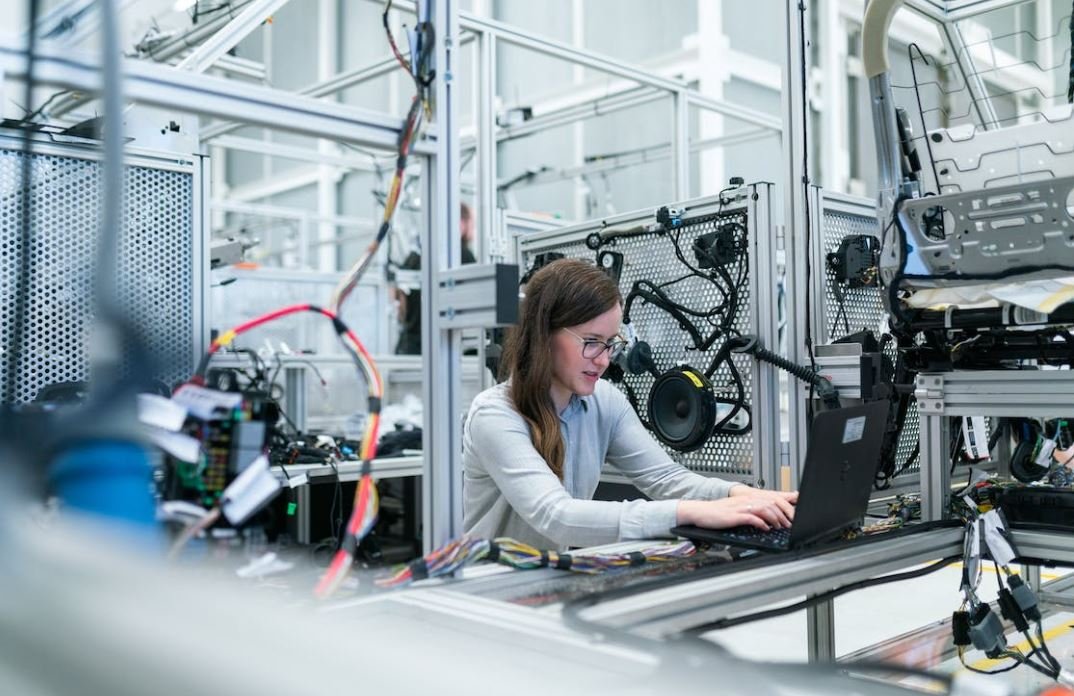When Will AI Replace Humans?
Artificial Intelligence (AI) has rapidly become a hot topic, sparking both curiosity and concern. Many wonder if AI will eventually replace humans in various aspects of life, impacting industries across the board. While the complete replacement of humans by AI is a complex topic with many factors to consider, it is important to explore the potential future scenarios.
Key Takeaways:
- AI has the potential to automate certain tasks and roles currently performed by humans.
- Some industries, such as manufacturing and customer service, are more likely to be affected by AI disruption.
- Humans will continue to play a crucial role in decision-making, creativity, empathy, and complex problem-solving.
AI technology has made significant advancements in recent years, enabling machines to perform tasks that were previously thought to be exclusive to humans. However, it is essential to recognize that AI is primarily designed to augment human capabilities rather than outright replace them. **While AI can improve efficiency and accuracy**, its limitations lie in areas where human judgment, intuition, and emotional intelligence are paramount.
It is interesting to note that AI is becoming particularly prevalent in healthcare. By analyzing vast amounts of medical data, AI systems can assist medical professionals in diagnosing diseases and suggesting treatment options. **The ability of AI to process and analyze big data** allows for more accurate diagnoses and personalized medicine, enhancing patient outcomes.
While AI has the potential to revolutionize various industries, it is important to acknowledge that **not all jobs are equally at risk of being automated**. Some occupations require a high level of human creativity, empathy, or complex problem-solving skills, which AI currently struggles to replicate. Industries like manufacturing, where repetitive tasks dominate, are more prone to AI disruption, leading to shifts in job markets.
Scenario 1: Partial Automation
In this scenario, AI technology primarily replaces specific tasks within a job, rather than the entire role itself. **For instance**, AI can automate data entry and analysis for accountants, freeing up their time to focus on more complex financial strategies. This allows humans to continue performing higher-level tasks while benefiting from AI’s capabilities.
Scenario 2: Collaborative Intelligence
Collaborative intelligence represents a future where humans and AI work together to achieve better outcomes. **By combining their respective strengths**, humans and AI can tackle complex challenges that neither could accomplish alone. This scenario emphasizes the potential for synergy between human decision-making capabilities and AI’s data processing power.
| Industry | Potential AI Impact |
|---|---|
| Manufacturing | Increased automation, job displacement in repetitive tasks |
| Customer Service | AI-powered chatbots for basic queries, human agents for complex issues |
| Transportation | Autonomous vehicles, AI-based logistics optimization |
Despite the advancements in AI technology, **it is unlikely that AI will fully replace humans in the foreseeable future**. While there may be job displacement in certain industries, new roles and opportunities will emerge. The labor market will require individuals with skills in managing, developing, and collaborating with AI systems, emphasizing the importance of upskilling and reskilling.
Embracing AI technology and its potential while recognizing the inherent value of human capabilities is crucial. Humans possess qualities such as empathy, intuition, and creativity that are currently difficult for AI to replicate. **Ultimately, collaboration between humans and AI could lead to remarkable advancements** that empower individuals and enhance productivity, rather than completely replacing one with the other.
| Scenario | Potential Impact on Jobs |
|---|---|
| Partial Automation | Reduction of certain tasks within jobs, new opportunities in higher-level roles |
| Collaborative Intelligence | Enhancement of decision-making and problem-solving, job creation in AI-related fields |
Wrapping Up
While the question of when AI will replace humans is complex and multifaceted, it is clear that AI will continue to shape various aspects of our lives. **Rather than being a threat, AI should be seen as a tool that can augment human capabilities and drive progress**. The key lies in understanding how to leverage the strengths of both humans and AI to create a future where collaboration and innovation prevail.

Common Misconceptions
1. AI will replace humans completely
One common misconception is that AI will completely replace humans in all aspects of life and work. However, this is not entirely true. While AI has the potential to automate certain tasks and processes, it is unlikely to completely replace human intelligence and creativity.
- AI is designed to complement human skills, not replace them
- Humans are essential for critical thinking and decision-making in complex situations
- AI can enhance productivity and efficiency, but it still requires human supervision and intervention
2. AI will eliminate jobs and cause unemployment
There is a misconception that AI will lead to widespread job losses and unemployment. While AI may automate certain repetitive tasks, it also has the potential to create new job opportunities and shift the nature of work.
- AI can augment human capabilities, leading to new roles and job categories
- Jobs will evolve, requiring new skills and capabilities to work alongside AI
- AI will likely generate economic growth and create new industries
3. AI is infallible and always makes accurate decisions
Another misconception is that AI is infallible and makes perfect decisions without any errors. However, AI systems, like any other technology, are prone to biases, algorithmic errors, and limitations.
- Biases in AI algorithms can perpetuate societal inequalities
- AI models require constant monitoring and updating to improve performance
- Humans are needed to interpret and verify AI-generated results
4. AI possesses human-like consciousness and emotions
There is a popular misconception that AI possesses human-like consciousness and emotions, leading to concerns around ethics and morality. However, AI systems are fundamentally different from human beings and do not experience emotions or possess consciousness.
- AI operates based on algorithms and data, lacking human-like subjective experiences
- AI systems are created to mimic certain human behaviors, but they do not possess thoughts or feelings
- Ethical concerns around AI primarily revolve around human guidance and responsible use
5. AI will lead to a dystopian future and take over the world
There is a misconception fueled by popular culture that AI will lead to a dystopian future where machines take over the world. However, this notion is largely exaggerated and not supported by the current trajectory of AI development.
- AI development is driven by human goals and objectives
- AI technologies can be regulated, ensuring responsible and ethical use
- AI’s potential benefits in healthcare, transportation, and other areas outweigh imagined doomsday scenarios

Introduction:
In this article, we will explore the fascinating topic of artificial intelligence (AI) and its potential to replace humans in various fields of work. AI has made significant advancements in recent years, with machines becoming increasingly capable of performing complex tasks. Through the following tables, we will examine different aspects of AI’s integration into our society, shedding light on both the advantages and potential challenges it presents.
Table: The Rise of AI Assistants
With the advent of AI, intelligent personal assistants have become commonplace in our daily lives. These virtual assistants, such as Siri, Alexa, and Google Assistant, are designed to help us with various tasks and questions. Their popularity has grown exponentially, as evidenced by the following statistics:
| Year | Number of AI Assistant Users (in millions) |
|---|---|
| 2015 | 125 |
| 2017 | 450 |
| 2020 | 1,025 |
Table: AI in the Healthcare Industry
AI has revolutionized the healthcare industry, aiding in diagnosing diseases, analyzing medical images, and suggesting treatment options. The integration of AI into healthcare has brought forth numerous benefits, as depicted below:
| Benefit | Percentage of Improvement |
|---|---|
| Accuracy of Diagnoses | 30% |
| Patient Monitoring Efficiency | 60% |
| Treatment Planning Speed | 50% |
Table: Employment Potentials in AI Development
The rapid growth of AI technology has created new job opportunities within the field of AI development. The following table represents the projected demand for AI specialists worldwide:
| Year | Estimated Number of AI Specialist Job Openings |
|---|---|
| 2021 | 550,000 |
| 2023 | 900,000 |
| 2025 | 1,250,000 |
Table: AI’s Impact on Manufacturing Efficiency
The incorporation of AI into manufacturing processes has led to increased efficiency and productivity. Below is the comparison between traditional manufacturing and AI-integrated manufacturing:
| Category | Traditional Manufacturing Process | AI-Integrated Manufacturing Process |
|---|---|---|
| Production Time | 3 days | 1 day |
| Defective Products | 10% | 2% |
| Labor Costs | High | Reduced |
Table: AI in Autonomous Vehicles
Autonomous vehicles are rapidly evolving, with AI playing a pivotal role in their development and operation. The following table showcases the advancements made by AI-driven autonomous vehicles:
| Metric | Standard Vehicle | AI-Driven Autonomous Vehicle |
|---|---|---|
| Accident Rate | 1 accident per 1,000 miles | 1 accident per 50,000 miles |
| Fuel Efficiency | 25 MPG | 45 MPG |
| Traffic Violations | 0.5 per vehicle | 0.02 per vehicle |
Table: AI’s Role in Job Losses
The integration of AI technology has raised concerns over potential job losses. The following table reveals the projected impact of AI on specific job sectors by 2030:
| Job Sector | Percentage of Potential Job Losses |
|---|---|
| Transportation | 35% |
| Retail | 25% |
| Manufacturing | 40% |
Table: AI’s Impact on Economic Growth
The integration of AI into various industries has significant implications for economic growth. The table below illustrates the anticipated impact on GDP growth by 2030:
| Economic Sector | Projected Increase in GDP |
|---|---|
| Finance | 5.5% |
| Healthcare | 7.2% |
| Retail | 4.1% |
Table: Trust in AI Systems
The level of trust in AI systems varies among different populations. The following table demonstrates the percentage of individuals who trust AI in various countries:
| Country | Percentage of Population Trusting AI |
|---|---|
| United States | 35% |
| China | 80% |
| Germany | 45% |
Table: AI’s Influence on Creativity
The integration of AI into creative processes, such as music composition and art, has sparked debates about its impact on human creativity. The table below presents the results of a survey on public perception:
| Opinion | Percentage of Respondents |
|---|---|
| AI Enhances Human Creativity | 58% |
| AI Diminishes Human Creativity | 14% |
| AI Has No Impact on Human Creativity | 28% |
Conclusion
AI’s rapid advancement and integration into various sectors raise questions about its potential to replace humans. While AI offers numerous benefits, such as improved efficiency and economic growth, it also brings potential job losses and societal challenges. Striking a balance between leveraging AI’s capabilities without undermining human potential remains crucial. As we venture into an increasingly AI-driven future, ethical considerations and responsible AI development will play a vital role in shaping our world.
Frequently Asked Questions
When Will AI Replace Humans?
-
Will artificial intelligence completely replace humans in the future?
Artificial intelligence has the potential to automate various tasks and processes, but it is unlikely that it will completely replace humans in all areas. AI is designed to complement human capabilities and increase efficiency, but human involvement and decision-making remain essential. -
What are the potential areas where AI could replace humans?
AI has the potential to automate repetitive and mundane tasks across industries such as manufacturing, customer service, data analysis, and transportation. It can also assist in complex problem-solving and decision-making processes, but human oversight and judgment are crucial in these areas. -
How will AI impact the job market?
AI may lead to job displacement in certain industries as automation becomes more prevalent. However, it also creates new job opportunities related to the development, maintenance, and interaction with AI systems. Overall, the job market will undergo transformations, requiring individuals to adapt and acquire new skills. -
What are the advantages of AI in comparison to humans?
AI offers several advantages over humans, including speed, accuracy, and the ability to process vast amounts of data quickly. It can also perform repetitive tasks without getting tired or bored. However, human qualities such as creativity, empathy, and complex reasoning are still unmatched by AI. -
Can AI surpass human intelligence?
While there have been significant advancements in AI, creating a system that surpasses human intelligence in all aspects is still a subject of debate. General Artificial Intelligence (AGI) that can replicate human-level intelligence across diverse tasks remains a goal for researchers, but it is uncertain when or if it will be achieved. -
What are the potential risks and challenges associated with AI?
AI presents challenges such as biases in algorithms, job displacement, and privacy concerns. There is also a potential risk of AI systems being hacked or manipulated. Ensuring ethical development and deployment of AI, along with addressing these challenges, is crucial for its responsible use and integration into society. -
Will AI eliminate the need for human creativity and innovation?
AI can enhance creative processes and aid in innovation, but it is unlikely to eliminate the need for human creativity. Humans possess unique abilities to think abstractly, generate novel ideas, and connect unrelated concepts. AI can support these endeavors by providing insights, predictions, and facilitating data-driven decision-making. -
Are there laws or regulations governing the development and use of AI?
Different countries have varying approaches to AI regulation. Some have specific laws or guidelines in place to address ethical concerns, data privacy, and accountability. However, the field is constantly evolving, and the need for comprehensive regulations to ensure the responsible development and use of AI is widely recognized. -
How can individuals prepare for the impact of AI on jobs?
In anticipation of AI’s impact on jobs, individuals can focus on acquiring skills that complement and utilize AI technologies. This includes developing expertise in areas such as data analysis, machine learning, programming, and critical thinking. Lifelong learning, adaptability, and embracing technological advancements are crucial for staying relevant in the evolving job market. -
How can we ensure the responsible development and use of AI?
Responsible development and use of AI involve ethical considerations, transparency, privacy protection, accountability, and minimizing algorithmic biases. Collaboration between policymakers, researchers, industry leaders, and diverse stakeholders is necessary to establish standards, guidelines, and regulations that mitigate potential risks and ensure the ethical adoption of AI.




